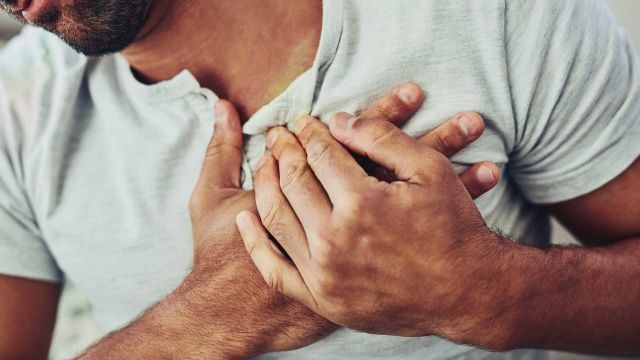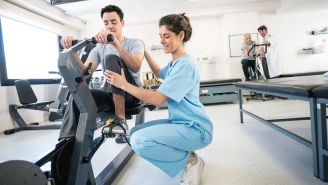Updated on October 25, 2024.
About 805,000 people in the United States have heart attacks each year, according to the Centers for Disease Control and Prevention (CDC). And roughly 12 percent of them are fatal.
But many people who have heart attacks put off getting help by hours. In one study, nearly two-thirds of participants delayed getting help for two hours or more. That delay can mean they’re less likely to survive and recover.
If you think you or another person could be having a heart attack, don't wait. Follow the steps below and get help.
Know the signs of a heart attack
Major symptoms of a heart attack include:
- Chest pain or discomfort
- Pain or discomfort in the jaw, neck, arms, shoulder, or back
- Shortness of breath
- Weakness and light-headedness
- Feeling sweaty and cold
- Nausea or vomiting
- Lightheadedness
You may have heard that women’s heart attack symptoms may differ. Chest pain or discomfort is still the number-one symptom in women and they can and do experience any of the above symptoms. But they are likelier than men to have:
- Shortness of breath
- Nausea or vomiting
- Back or jaw pain
Some women having a heart attack also experience extreme fatigue, pressure in the abdomen, or fainting.
What to do in the case of a heart attack
Ignoring heart attack symptoms could cost a person their life. The American Heart Association says that calling 911 immediately offers the best chance of surviving or saving a life, that it is safe for everyone to call 911, and that it is safe for anyone to go to the hospital.
If you think you (or another person) may be having a heart attack, follow these three steps:
Call 911
Don't wait longer than five minutes to get help. Say to the 911 operator, "I think I'm having a heart attack." (If it later turns out that you’re not, that’s still okay—emergency services are there to help sort out all kinds of problems.)
Follow the operator's directions
Talk with the operator first. Do not spend time taking an aspirin and waiting for pain relief. Aspirin is not enough on its own to treat a heart attack.
The operator may advise you to take aspirin, if you don’t have allergies. Aspirin can help by preventing clots that further restrict blood flow to the heart.
“Aspirin is a drug that impacts the ability of platelets to stick to each other,” says Reginald Blaber, MD, a cardiologist and chief clinical officer with Virtua Health in Camden, New Jersey. “That’s important because during a heart attack a clot is forming in one of the coronary arteries. By taking aspirin it can relatively quickly take those platelets and make them less sticky, slowing the growth of the clot.”
Don't try to drive yourself to the hospital or have someone drive you
Instead, take an ambulance. When you let emergency professionals do their jobs, they can begin diagnosis and treatment on the scene. Plus, they can give the hospital notification that you are on the way.







